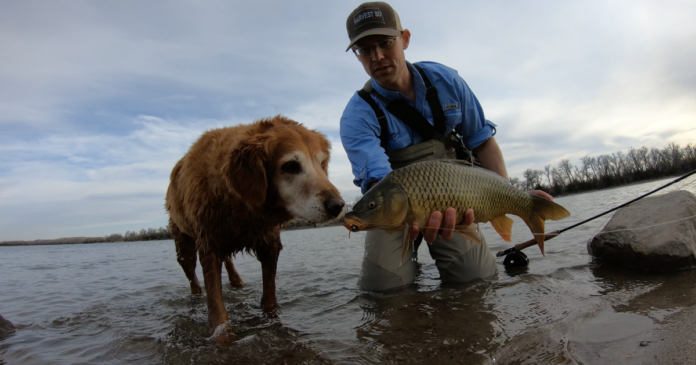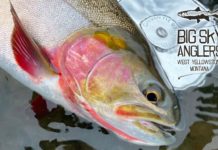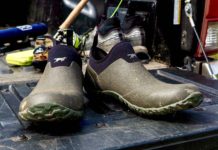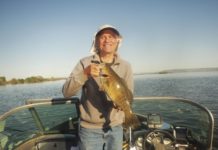Think for a minute about the best fishing story you ever heard.
Was it from a coworker, parent, grandfather or good friend? Is the storyteller still around to tell it again?
Anglers carry reputations as exaggerators, embellished story tellers and outright liars. The fish we catch are big and the ones that get away are even larger.
But setting the hyperbole and fishing lore aside, there is great artistry in a well told story, no matter the size of the fish or the angler personality.
Fishing stories are memorable to us as individuals on a few accounts: who is telling the story, where it occurred, what happened, why it happened that way and how it all went down.
Fishing stories are like folk lore — American as apple pie and baseball, meaningful, and artistically alluring.
The beauty of a good fishing story is not lost on Buddy Seiner. Fish Stories (www.fishstories.org) is Seiner’s creation, an archive for fishing tales that can be uploaded for free.
Seiner began the website in 2017 with the larger goal of preserving fish stories and angler voices. Today, he is a storyteller and interviewer, as well as collector and curator of fishing stories.
The genesis of Fish Stories began as fond memories of his time fishing with family and talking with his grandfather.
Buddy’s grandmother passed away from dementia when he was young, leaving his grandfather, Selvin Tollefsrud, widowed and alone. Buddy visited his grandfather in Spearfish, South Dakota, as much as he could.
“He lived on a little tiny three or four acres of land in a trailer house by the airport with a beautiful landscape in the background,” Seiner said. “We’d sit and just talk. Usually, we’d run out of things to talk about because he didn’t say much. But he always kept these articles around, fishing story clippings from magazines and newspapers — anything about fish. He’d always bring those out. I’m convinced he kept them around because he knew that I would like talking about them.
“In 2011, he passed away and the thought process behind Fish Stories began. You just miss those conversations after you lose that person. I finally just decided that someone should create a place for anglers to keep their voices. Story Corps was around, but it really covered different issues. I kept saying ‘someone should do this, someone should do this’ for many years and finally in 2016, I just decided that I’m never going to get it done if I just let it be a Plan B or a side project, so I made it a priority. I started conversations with a web developer to see if it was even possible and it was. Finally, I quit my job and tried to make it work. That was January 2017.”
Buddy says that most anglers are naturally good at story telling.
“Most anglers are pretty eccentric, they are humble, not going to brag about themselves — but they need the trust value, someone to come down to their level and be a part of it,” he said. “You have to have that setting where it’s a person you trust and is generally interested in hearing the story. Nine times out of 10, they’re looking for anyone to tell the story to.”
How much would each of us give to hear grandpa tell a fishing story again? You can’t put a price on memories, experiences or people.
“Because of this archive,” Buddy said, “the common denominator of a fishing story’s success is the angler’s voice. I can tell stories that my grandpa told, but I can’t tell them the same without his voice. When you hear a specific voice, it’s like a visceral experience. It brings people to a certain place.”
There is artform in the story, in the storyteller, the emotion and the sensory experience. Fishing stories, Buddy said, are cultural and historic artifacts from angling communities all around the world. Recorded stories can convey humor, adventure, sense of place, great times and hard times, but no matter what are cultural experiences that double as voice preservation.
Fishing stories are ultimately about sharing the human experience. Heck, they can be equal parts fact and fiction.
Buddy has advice for how to record a fish story.
“Everyone always says ‘I don’t have any good stories to tell.’ There is a skillset in asking the right kind of questions to get a hesitant storyteller started. You also start knowing what questions to ask that will draw out the types of responses you need to get people to a place to remember stories. It only comes with practice.”
Buddy recommends asking for stories in the presence of families and friends. If a significant other or son or daughter is present, an angler is more apt to have a conversation or tell a story. How you ask the questions is important.
“I have a whole list of questions that I ask as part of the fishing story archive, which are also available at the website” Buddy said. “The questions are a good starting point or if you get stuck, you can go to a different spot. The conversation hopefully happens organically. You can ask about trips, fishing buddies or fishing mentors as a starting point.
“Whenever the opportunity presents itself, ask follow up questions for greater details. ‘What did the cabin smell like? What was the weather like that day? How many fish had you caught before the big one bit?’ Details help make the story.”
Buddy recommends making a plan and following through to preserve a favorite angler’s voice and to ensure your favorite fish stories become mementos.
“The biggest struggle to getting more stories into the archive is that people think it is a great idea but don’t act on it,” he explained. “They commit to it in their head and you can see the lightbulb go off, but then they don’t follow through. They put it off. It’s like sending a thank you card, if you don’t send it right away, you aren’t going to write it, put a stamp on it, and put it in the mailbox. You’re going to get snagged somewhere in the process and it gets away from you. Fishstories.org accepts any audio format. All you have to do is upload the audio file and include all the necessary tags and information.”
Today, everyone’s smartphone has a voice record app, pushing the record button is the easy part.
“A fish story might only be important to one person, but to that one person it means everything,” Buddy said. “The regrets I hear from others tell me I’m doing the right thing. ‘I wish this was here when my grandma was alive’ are the types of responses I get when people learn about Fish Stories. The goal of the archive is to preserve these stories. It’s not for me, it’s for anyone out there that has something they want to keep around forever. For anglers, this is our legacy. This is what we are good at. This is what I have to pass on to the next generation. When those stories aren’t told, when that person dies, the story dies with them. As much as we think we can keep those stories alive, it’s not the same in someone else’s voice. I want this to grow as a benefit to the angling community. Fish Stories won’t grow without people supporting it financially and without voice uploads. People can upload stories and donate to the archive to ensure it keeps growing, to make the archive resilient and able to stand alone.”
Buddy’s work caretaking fishing stories reminds us all to take advantage of his unique, wonderful and free platform to preserve angling stories. As he is fond of saying, “All fish stories deserve to be told.”
Preserve a great story for future generations, spark a memory with family and friends, or tell your own big fish story.
Buddy’s fish story
“I started fishing in 1983. I went fishing with my Dad on a warm November day to Pactola Reservoir in the Black Hills of South Dakota. I was 2 years old.
“It was my father’s first time trout fishing. We learned together how to trout fish. We caught a limit that day. Dad was always the initiator. My uncles were all big anglers as was my grandfather.
“We’d throw sinkers and hooks on the bottom of the lake or stream, and that’s how my dad learned. We’d go with my grandpa and we used sinkers and marshmallows in Spearfish Creek.
“I thought about fly fishing the creek as a kid, but I never asked about it because I didn’t know any better. You’d know when you didn’t have bait on and you needed another marshmallow because you’d see it floating down the creek.
“My dad would host family and friend fishing tournaments in the Black Hills. We’d have a dozen or two dozen people and we’d camp at Sylvan Lake. We’d take over the lake! Dad would make ribbons and a trophy for the winners. We were so competitive as kids.
“This fishing trip was always the thing — the Memorial weekend fishing trip was the thing we looked forward to most every single year. We got to see all our friends and we got to play wiffleball and football.
“One day, I remember there was this crowd gathered around the dock on the south side of the lake. We went down there and this guy had the biggest rainbow trout I’d ever seen. It looked like a king salmon. It had a big red and white daredevil hanging out of its mouth.
“And from that day on, I was only going to catch trout without bait. I was going to only cast spoons and spinners to catch fish. I got good at casting spoons and caught even more trout.
“Then you’d see these fish jumping around the lake. I’d have to ask myself, why the heck are they jumping? They were eating hatching insects. I went into the gift shop and bought some pre-packaged flies. I remember throwing out a clear bobber and a simple blue-winged olive, and I was catching fish on every cast.
“People started to crowd around me, asking me questions — what are you using, how are you catching so many fish. I had no clue what I was doing, but I was catching fish.
“I started talking to my uncles who liked to fly fish. Pretty soon they were giving me gear, rods and reels, and I started practicing casting, doing it on my own here and there. I worked through the frustration and caught a fish here and there to keep my interest. Now I teach people how to fly fish and tie flies.
“I’ve become a snob in some ways. I don’t like sitting in one place at one time, I don’t like dragging bottom bouncers unless I’m with people I really like and want to talk to. I started with crawlers on the bottom and now have advanced to fly tackle.”
Scott Mackenthun has been writing about hunting and fishing since 2005. Email him at scott.mackenthun@gmail.com.
Credit: Source link































